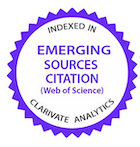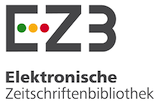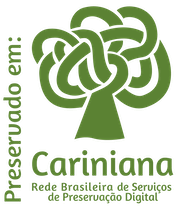Suplementação da dieta de juvenis de tilápia criados em tanques bft (bioflocos) com dl-metionina
DOI:
https://doi.org/10.1590/1809-6891v22e-63874Resumo
O presente estudo teve por objetivo determinar os efeitos da suplementação da ração balanceada de juvenis de tilápia do Nilo (peso médio inicial = 2,76 ± 0,06 g), submetidos à restrição na oferta de alimento artificial em tanques BFT de cultivo (18 juvenis/tanque 100 L), com DL-metionina, sobre a qualidade da água, composição dos bioflocos e desempenho zootécnico. Os tratamentos experimentais foram constituídos por dois grupos controle: 1 – sem restrição alimentar, sem suplementação com metionina; 2 – com restrição alimentar de 25%, sem suplementação com metionina. Os quatro tratamentos experimentais foram os seguintes: 1 – restrição alimentar de 25%, suplementação da ração com 0,5% de DL-metionina misturada à ração; 2 – restrição alimentar de 25%, suplementação da ração com 1,0% de DL-metionina misturada à ração; 3 – restrição alimentar de 25%, suplementação da ração com 2,0% de DL-metionina misturada à ração; 4 – restrição alimentar de 25%, suplementação do melaço em 1,0% de DL-metionina. A suplementação da ração balanceada com DL-metionina não afetou a qualidade da água de cultivo de juvenis de tilápia do Nilo, em tanques BFT, nem a composição centesimal do bioflocos. Após 8 semanas, o ganho em peso corporal dos peixes mantidos nos tanques com restrição alimentar e suplementação da ração com 1% ou 2% de DL-metionina não diferiu (P>0,05) do observado nos tanques sem restrição alimentar. Concluiu-se que é possível restringir as taxas de arraçoamento de juvenis de tilápia do Nilo, mantidos em tanques BFT de cultivo, em 25%, sem prejuízo zootécnico, desde que se faça a suplementação da dieta com, pelo menos, 1% de DL-metionina.
Palavras-chave: Bioflocos. Aminoácido. Aquicultura. Qualidade de água.
Downloads
Referências
De Schryver P, Crab R, Defoirdt T, Boon N, Verstraete W. The basics of bio-flocs technology: the added value for aquaculture. Aquaculture. 2008 Jun; 277(3-4): 125-137. Disponível em: http://www.sciencedirect.com/science/article/pii/S0044848608000896.
Kumar V S, Pandey P K, Anand T, Bhuvaneswari G R, Dhinakaran A, Kumar S. Biofloc improves water, effluent quality and growth parameters of Penaeus vannamei in an intensive culture system. Journal of Environmental Management. 2018 Jun; 215(1): 206-215. Disponível em: http://www.sciencedirect.com/science/article/pii/S030147971830238X.
Azim M E, Little D C. The biofloc technology (BFT) in indoor tanks: Water quality, biofloc composition, and growth and welfare of Nile tilapia (Oreochromis niloticus). Aquaculture. 2008 Oct; 283(1-4):29–35. Disponível em: http://www.sciencedirect.com/science/article/pii/S0044848608004699.
Avnimelech Y. Biofloc technology: A pratical guide book. Baton Rouge, Louisiana, United States, The World Aquaculture Society. 2009, 182 p.
Long L, Yang J, Li Y, Guan C, Wu F. Effect of biofloc technology on growth, digestive enzyme activity, hematology, and immune response of genetically improved farmed tilapia (Oreochromis niloticus). Aquaculture. 2015 Nov; 448 (1): 135-141. Disponível em: http://www.sciencedirect.com/science/article/pii/S0044848615300089
Kuhn D D, Boardman G D, Lawrence A L, Marsh L, Flick G J. Microbial flocs generated in bioreactors is a superior replacement ingredient for fishmeal or soybean meal in shrimp feed. Aquaculture. 2009 Nov; 296(1-2): 51–57. Disponível em: http://www.sciencedirect.com/science/article/pii/S0044848609006619.
Xu W J, Pan L Q, Zhao D H, Huang J. Preliminary investigation into the contribution of bioflocs on protein nutrition of Litopenaeus vannamei fed with different dietary protein levels in zero-water exchange culture tanks. Aquaculture. 2012 Jun; 350(1): 147-153. Disponível em: http://www.sciencedirect.com/science/article/pii/S0044848612002074.
da Silva M A, de Alvarenga E R, Alves G F O, Manduca L G, Turra E M, de Brito T S, de Sales S C M, da Silva Junior A F, Borges W J M, Teixeira E A. Crude protein levels in diets for two growth stages of Nile tilapia (Oreochromis niloticus) in a biofloc system. Aquaculture research. 2018 Jun; 49(8): 2693-2703. Disponível em: https://doi.org/10.1111/are.13730.
Green B W, Rawles S D, Schrader K K, Gaylord T G, McEntire M E. Effects of dietary protein content on hybrid tilapia (Oreochromis aureus × O. niloticus) performance, common microbial off-flavor compounds, and water quality dynamics in an outdoor biofloc technology production system. Aquaculture. 2019 Mar; 503(1): 571-582. Disponível em: http://www.sciencedirect.com/science/article/pii/S0044848618320805.
Emerenciano M, Ballester E L, Cavalli R O, Wasielesky W. Effect of biofloc technology (BFT) on the early postlarval stage of pink shrimp Farfantepenaeus paulensis: growth performance, floc composition and salinity stress tolerance. Aquaculture International. 2011 Oct; 19(5): 891-901. Disponível em: https://doi.org/10.1007/s10499-010-9408-6.
Wei Y F, Liao S A, Wang A L. The effect of diferente carbon sources on the nutritional composition, microbial community and structure of bioflocs. Aquaculture. 2016 Dec; 465(1): 88-93. Disponível em: http://www.sciencedirect.com/science/article/pii/S0044848616304410.
Ballester E L C, Abreu P C, Cavalli R O, Emerenciano M, De Abreu L, Wasielesky Jr W. Effect of practical diets with different protein levels on the performance of Farfantepenaeus paulensis juveniles nursed in a zero exchange suspended microbial flocs intensive system. Aquaculture Nutrition. 2010 Mar; 16(2): 163-172. Disponível em: https://doi.org/10.1111/j.1365-2095.2009.00648.x.
Durigon E G, Lazzari R, Uczay J, de Alcântara Lopes D L, Jerônimo G T, Sgnaulin T, Emerenciano M G C. Biofloc technology (BFT): Adjusting the levels of digestible protein and digestible energy in diets of Nile tilapia juveniles raised in brackish water. Aquaculture and Fisheries. 2020 Ján; 5(1): 42-51. Disponível em: https://doi.org/10.1016/j.aaf.2019.07.001.
Bauer W, Prentice-Hernandez C, Tesser M B, Wasielesky Jr W, Poersch L H. Substitution of fishmeal with microbial floc meal and soy protein concentrate in diets for the pacific white shrimp Litopenaeus vannamei. Aquaculture. 2012 Apr; 342-343: 112-116. Disponível em: http://www.sciencedirect.com/science/article/pii/S0044848612001147.
Ekasari J, Angela D, Waluyo S H, Bachtiar T, Surawidjaja E H, Bossier P, De Schryver P. The size of biofloc determines the nutritional composition and the nitrogen recovery by aquaculture animals. Aquaculture. 2014 Apr; 426-427: 105-111. Disponível em: https://doi.org/10.1016/j.aquaculture.2014.01.023.
Li J, Liu G, Li C, Deng Y, Tadda M A, Lan L, Zhu S, Liu D. Effects of different solid carbon sources on water quality, biofloc quality and gut microbiota of Nile tilapia (Oreochromis niloticus) larvae. Aquaculture. 2018 Oct; 495:919-931. Disponível em: https://doi.org/10.1016/j.aquaculture.2018.06.078.
Avnimelech Y. Carbon/nitrogen ratio as a control element in aquaculture systems. Aquaculture. 1999 Jun; 176(3-4): 227-235. Disponível em: https://doi.org/10.1016/S0044-8486(99)00085-X.
Caldini N N, Capistrano H H D A, Rocha Filho P R N, Carmo e Sá M V. Partial replacement of artificial diets by wet bioflocs biomass in Nile tilapia culture tanks. Acta Scientiarum. Animal Sciences. 2018 Oct; 40:1-8. Disponível em: https://doi.org/10.4025/actascianimsci.v40i1.42426
Clesceri L S, Greenberg A E, Eaton A D. Standard Methods for the Examination of Water and Wastewater. 20.ed. Washington, DC: American Public Health Association; 1998.
Boyd C E, Tucker C S. Water quality and pond soil analyses for aquaculture. Auburn University, Opelika, USA, 1992. 183pp.
AOAC. Association of Official Analytical Chemistry. Official Methods of Analysis, 17th ed, Washington, D.C.USA, 2000.
Harris, T.D., Graham, J.L. Predicting cyanobacterial abundance, microcystin, and geosmin in a eutrophic drinking-water reservoir using a 14-year dataset. Lake and Reservoir Management. 2017. 33. Disponível em: https://pubs.er.usgs.gov/publication/70181018
da Costa D A, de Souza C L, Saliba E D O S, Carneiro J D. By-products of sugar cane industry in ruminant nutrition. Int. J. Adv. Agric. Res. 2015 Feb; 3: 1-95. Disponível em: http://www.bluepenjournals.org/ijaar/pdf/2015/March/da_Costa_et_al.pdf.
Xu W, Morris T C, Samocha T M. Effects of C/N ratio on biofloc development, water quality, and performance of Litopenaeus vannamei juveniles in a biofloc-based, high-density, zero-exchange, outdoor tank system. Aquaculture. 2016 Feb; 453:169-175. Disponível em: ttps://doi.org/10.1016/j.aquaculture.2015.11.021.
Zhang J, Chen L, Dong H, Duan Y, Li Z, Wen G, Chen J, Zhenhua Feng Z, Xu W, Xie J. Artificial substrates in zero‐water‐exchange culture system regulate the rearing performance of Pacific white shrimp Litopenaeus vannamei (Boone, 1931) under the winter indoor condition. Aquaculture research. 2016 Ján; 47(1): 91-100. Disponível em: ttps://doi.org/10.1111/are.12473.
Hargreaves, J.A. Biofloc Production Systems for Aquaculture. Southern Regional Aquaculture Centre, No. 4503, 2013.
Ebeling J M, Timmons M B, Bisogni J J. Engineering analysis of the stoichiometry of photoautotrophic, autotrophic, and heterotrophic removal of ammonia-nitrogen in aquaculture systems. Aquaculture. 2006 Jun; 257(1-4): 346-358. Disponível em: https://doi.org/10.1016/j.aquaculture.2006.03.019.
Luo G, Zhang N, Cai S, Tan H, Liu Z. Nitrogen dynamics, bacterial community composition and biofloc quality in biofloc-based systems cultured Oreochromis niloticus with poly-β-hydroxybutyric and polycaprolactone as external carbohydrates. Aquaculture. 2017 Oct; 479: 732-741. Disponível em: https://doi.org/10.1016/j.aquaculture.2017.07.017.
Luo G, Gao Q, Wang C, Liu W, Sun D, Li L, Tan H. Growth, digestive activity, welfare, and partial cost-effectiveness of genetically improved farmed tilapia (Oreochromis niloticus) cultured in a recirculating aquaculture system and an indoor biofloc system. Aquaculture. 2014 Feb; 422-423: 1-7. Disponível em: https://doi.org/10.1016/j.aquaculture.2013.11.023.
Mansour A T, Esteban M A. Effects of carbon sources and plant protein levels in a biofloc system on growth performance, and the immune and antioxidant status of Nile tilapia (Oreochromis niloticus). Fish & shellfish immunology. 2017 May; 64: 202-209. Disponível em: https://doi.org/10.1016/j.fsi.2017.03.025.
Ray A J, Lewis B L, Browdy C L, Leffler J W. Suspended solids removal to improve shrimp (Litopenaeus vannamei) production and an evaluation of a plant-based feed in minimal-exchange, superintensive culture systems. Aquaculture. 2010 Feb; 299(1-4): 89–98. Disponível em: https://doi.org/10.1016/j.aquaculture.2009.11.021.
Gallardo-Collí A, Pérez-Rostro C I, Hernández-Vergara M P. Reuse of water from biofloc technology for intensive culture of Nile tilapia (Oreochromis niloticus): effects on productive performance, organosomatic indices and body composition. International Aquatic Research. 2019 Feb; 11(1): 43-55. Disponível em: https://link.springer.com/article/10.1007/s40071-019-0218-9.
Rajkumar M, Pandey P K, Aravind R, Vennila A, Bharti V, Purushothaman C S. Effect of different biofloc system on water quality, biofloc composition and growth performance in Litopenaeus vannamei (Boone, 1931). Aquaculture research. 2016 May; 47(11): 3432-3444. Disponível em: https://doi.org/10.1111/are.12792.
Valle B C S, Dantas Jr E M, Silva J F X, Bezerra R S, Correia E S, Peixoto S R M, Soares R B. Replacement of fishmeal by fish protein hydrolysate and biofloc in the diets of Litopenaeus vannamei postlarvae. Aquaculture Nutrition. 2015 Nov; 21(1): 105-112. Disponível em: https://doi.org/10.1111/anu.12149.
He J Y, Long W Q, Han B, Tian L X, Yang H J, Zeng S L, Liu Y J. Effect of dietary l‐methionine concentrations on growth performance, serum immune and antioxidative responses of juvenile Nile tilapia, Oreochromis niloticus. Aquaculture research. 2017 Oct; 48(2): 665-674. Disponível em: https://doi.org/10.1111/are.12913.
Yuan Y C, Gong S Y, Yang H J, Lin Y C, Yu D H, Luo Z. Effects of supplementation of crystalline or coated lysine and/or methionine on growth performance and feed utilization of the Chinese sucker, Myxocyprinus asiaticus. Aquaculture. 2011 Jun; 316(1-4): 31-36. Disponível em: https://doi.org/10.1016/j.aquaculture.2011.03.015
Guo, T Y, Zhao W, He J Y, Liao S Y, Xie J J, Xie S W, Masagounder K, Liu Y J, Tian L X, Niu J. Dietary dl-methionyl-dl-methionine supplementation increased growth performance, antioxidant ability, the content of essential amino acids and improved the diversity of intestinal microbiota in Nile tilapia (Oreochromis niloticus). British Journal of Nutrition. 2020 Aug; 123(1): 72-83. Disponível em: https://doi.org/10.1017/S0007114519002289.
Cavalcante D D H, Lima F R D S, Rebouças V T, Carmo e Sá M V. Nile tilapia culture under feeding restriction in bioflocs and bioflocs plus periphyton tanks. Acta Scientiarum. Animal Sciences. 2017 Jul/Set; 39(3): 223-228. Disponível em: https://doi.org/10.4025/actascianimsci.v39i3.33574
Figueiredo‐Silva, C., Lemme, A., Sangsue, D., & Kiriratnikom, S. Effect of DL‐methionine supplementation on the success of almost total replacement of fish meal with soybean meal in diets for hybrid tilapia (Oreochromis niloticus × Oreochromis mossambicus). Aquaculture Nutrition. 2015 Aug; 21(2): 234-241. Disponível em: https://doi.org/10.1111/anu.12150.
Downloads
Publicado
Como Citar
Edição
Seção
Licença
Copyright (c) 2021 Ciência Animal Brasileira

Este trabalho está licenciado sob uma licença Creative Commons Attribution 4.0 International License.
Autores que publicam nesta revista concordam com os seguintes termos:
- Autores mantém os direitos autorais e concedem à revista o direito de primeira publicação, com o trabalho simultaneamente licenciado sob a Licença Creative Commons Attribution que permite o compartilhamento do trabalho com reconhecimento da autoria e publicação inicial nesta revista.
- Autores têm autorização para assumir contratos adicionais separadamente, para distribuição não-exclusiva da versão do trabalho publicada nesta revista (ex.: publicar em repositório institucional ou como capítulo de livro), com reconhecimento de autoria e publicação inicial nesta revista.
- Autores têm permissão e são estimulados a publicar e distribuir seu trabalho online (ex.: em repositórios institucionais ou na sua página pessoal) a qualquer ponto antes ou durante o processo editorial, já que isso pode gerar alterações produtivas, bem como aumentar o impacto e a citação do trabalho publicado (Veja O Efeito do Acesso Livre).






























